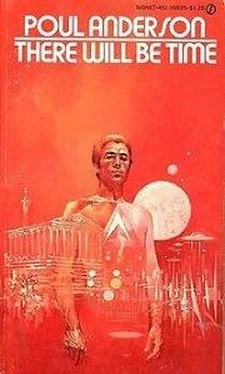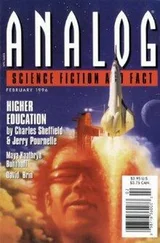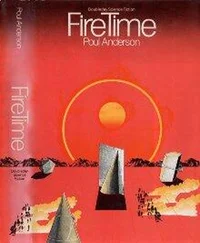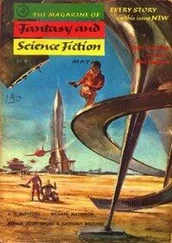Poul Anderson - There Will Be Time
Здесь есть возможность читать онлайн «Poul Anderson - There Will Be Time» весь текст электронной книги совершенно бесплатно (целиком полную версию без сокращений). В некоторых случаях можно слушать аудио, скачать через торрент в формате fb2 и присутствует краткое содержание. Год выпуска: 1972, Издательство: Doubleday, Жанр: Фантастика и фэнтези, на английском языке. Описание произведения, (предисловие) а так же отзывы посетителей доступны на портале библиотеки ЛибКат.
- Название:There Will Be Time
- Автор:
- Издательство:Doubleday
- Жанр:
- Год:1972
- ISBN:нет данных
- Рейтинг книги:5 / 5. Голосов: 1
-
Избранное:Добавить в избранное
- Отзывы:
-
Ваша оценка:
- 100
- 1
- 2
- 3
- 4
- 5
There Will Be Time: краткое содержание, описание и аннотация
Предлагаем к чтению аннотацию, описание, краткое содержание или предисловие (зависит от того, что написал сам автор книги «There Will Be Time»). Если вы не нашли необходимую информацию о книге — напишите в комментариях, мы постараемся отыскать её.
Nominated for Hugo Award for Best Novel in 1973.
There Will Be Time — читать онлайн бесплатно полную книгу (весь текст) целиком
Ниже представлен текст книги, разбитый по страницам. Система сохранения места последней прочитанной страницы, позволяет с удобством читать онлайн бесплатно книгу «There Will Be Time», без необходимости каждый раз заново искать на чём Вы остановились. Поставьте закладку, и сможете в любой момент перейти на страницу, на которой закончили чтение.
Интервал:
Закладка:
“I’m not certain its victory is predestined,” Havig said. “Maybe wishful thinking on my part. After what I’ve seen, however—” His earnestness helped cover the emptiness in him where Xenia had been. “Leonce, you do wrong to put down science and technology. They can be misused, but so can everything. Nature never has been in perfect balance — there are many more extinct species than live — and primitive man was quite as destructive as modern. He simply took longer to use up his environment. Probably Stone Age hunters exterminated the giant mammals of the Pleistocene. Certainly farmers with sickles and digging sticks wore out what started as the Fertile Crescent. And nearly all mankind died young, from causes that are preventable when you know how … The Maurai will do more than rebuild the foundation of Earth’s life. They’ll make the first attempt ever to create a balanced environment. And that’ll only be possible because they do have the scientific knowledge and means.”
“Don’t seem like they’ll succeed.”
“I can’t tell. That mysterious farther future … it’s got to be studied.” Havig rubbed his eyes. “Later, later. Right now I’m too tired. Let me borrow your Bowie after lunch and cut some boughs to sleep on for a week or three.”
She moved, then, to come kneel before him and lay one hand on his neck, run fingers of the other through his hair. “Poor Jack,” she murmured. “I been kind o’ short with you, haven’t I? Forgive. Was a strain on me also, this gettin’ away an’ — Sure, sleep. We have peace. Today we have peace.”
“I haven’t thanked you for what you did,” he said awkwardly. “I’ll never be able to thank you.”
“You bugbrain!” She cast arms around him. “Why do you think I hauled you out o’ there?”
“But-but-Leonce, I’ve seen my wife die—”
“Sure,” she sobbed. “How I… I’d like to go back … an’ meet that girl. If she made you happy — Can’t be, I know. Well, I’ll wait, Jack. As long as needful, I’ll wait.”
They weren’t equipped to stay more than a short while in ancient America. They could have gone uptime, bought gear, ferried it back. But after what they had suffered, no idle idyll was possible for them.
More important was the state of Havig’s being. The wound in him healed slowly, but it healed, and left a hard scar: the resolve to make war upon the Eyrie.
He didn’t think it was merely a desire for vengeance upon Xenia’s murderers. Leonce assumed this, and leagued herself with him because a Glacier woman stood by her man. He admitted that to a degree she was correct. (Is the impulse always evil? It can take the form of exacting justice.) Mainly, he believed that he believed, a brigand gang must be done away with. The ghastlinesses it had already made, and would make, were unchangeable; but could not the sum of that hurt be stopped from mounting, could not the remoter future be spared?
“A thing to puzzle over,” he told Leonce, “is that no time travelers seem to be born in the Maurai era or afterward. They might stay incognito, sure, same as the majority of them probably do in earlier history — too frightened or too crafty to reveal their uniqueness. Nevertheless … every single one? Hardly sounds plausible, does it?”
“Did you investigate?” she asked.
They were in a mid-twentieth-century hotel. Kansas City banged and winked around them, early at night. He was avoiding his former resorts until he could be sure that Wallis’s men would not discover these. The lamplight glowed soft over Leonce where she sat, knees drawn close to chin, in bed. She wore a translucent peignoir. Otherwise she gave him no sign that she was anything more in her heart than his sisterlike companion. A huntress learns patience, a Skula learns to read souls.
“Yes,” he said. “I’ve told you about Carelo Keajimu. He has connections across the globe. If he can’t turn up a traveler, nobody can. And he drew blank.”
“What does this mean?”
“I don’t know, except — Leonce, we’ve got to take the risk. We’ve got to make an expedition uptime of the Maurai.”
Again practical problems consumed lifespan.
Think. One epoch does not suddenly and entirely replace another. Every trend is blurred by numberless counter-currents. Thus, Martin Luther was not the first Protestant in the true sense — doctrinal as well as political — of that word. He was simply the first who made it stick. And his success was built on the failures of centuries, Hussites, Lollards, Albigensians, on and on to the heresies of Christendom’s dawn; and those had origins more ancient yet. Likewise, the thermonuclear reactor and associated machines were introduced, and spread widely, while mysticism out of Asia was denying, in millions of minds, that science could answer the questions that mattered.
If you want to study an epoch, in what year do you begin? You can move through time, but once at your goal, what have you besides your feet for crossing space? Where do you shelter? How do you eat?
It took a number of quick trips futureward to find the start of a plan.
Details are unimportant. On the west coast of thirty-first-century North America, a hybrid Ingliss-Maurai-Spanyol had not evolved too far for Havig to grope his way along in it. He took back a grammar, a dictionary, and assorted reading material. By individual concentration and mutual practice, he and Leonce acquired some fluency.
Enough atomic-powered robot-crewed commerce brought enough visitors from overseas that two more obvious foreigners would attract no undue attention. This was the more true because Sancisco was a favorite goal of pilgrimages; there the guru Duago Samito had had his revelation. Nobody believed in miracles. People did believe that, if you stood on the man-sculptured hills and looked down into the chalice which was the Bay, and let yourself become one with heaven and earth and water, you could hope for insight.
Pilgrims needed no credit account in the financial world-machine. The age was, in its austere fashion, prosperous. A wayside householder could easily spare the food and sleeping room that would earn virtue for him and travelers’ tales for his children.
“If you seek the Star Masters—” said the dark, gentle man who housed them one night. “Yes, they keep an outpost nigh. But surely some are in your land.”
“We are curious to see if the Star Masters here are like those we know at home,” Havig replied. “I have heard they number many kinds.”
“Correct. Correct.”
“It does not add undue kilometers to our journey.”
“You need not walk there. A call will do.” Havig’s host indicated the holographic communicator which stood in a corner of a room whose proportions were as alien — and as satisfying — to his guests as a Japanese temple would have been to a medieval European or a Gothic church to a Japanese.
“Though I doubt their station is manned at present,” he continued. “They do not come often, you know.”
“At least we can touch it,” Havig said.
The dark man nodded. “Aye. A full-sense savoring … aye, you do well. Go in God, then, and be God, happily.”
In the morning, after an hour’s chanting and meditation, the family returned to their daily round. Father hand-cultivated his vegetable garden; the reason for that seemed more likely depth-psychological than economic. Mother continued her work upon a paramathematical theorem too esoteric for Havig to grasp. Children immersed themselves in an electronic educational network which might be planetwide and might involve a kind of artificial telepathy. Yet the house was small, unpretentious except for the usual scrimshaw and Oriental sweep of roof, nearly alone in a great tawny hillscape.
Читать дальшеИнтервал:
Закладка:
Похожие книги на «There Will Be Time»
Представляем Вашему вниманию похожие книги на «There Will Be Time» списком для выбора. Мы отобрали схожую по названию и смыслу литературу в надежде предоставить читателям больше вариантов отыскать новые, интересные, ещё непрочитанные произведения.
Обсуждение, отзывы о книге «There Will Be Time» и просто собственные мнения читателей. Оставьте ваши комментарии, напишите, что Вы думаете о произведении, его смысле или главных героях. Укажите что конкретно понравилось, а что нет, и почему Вы так считаете.












